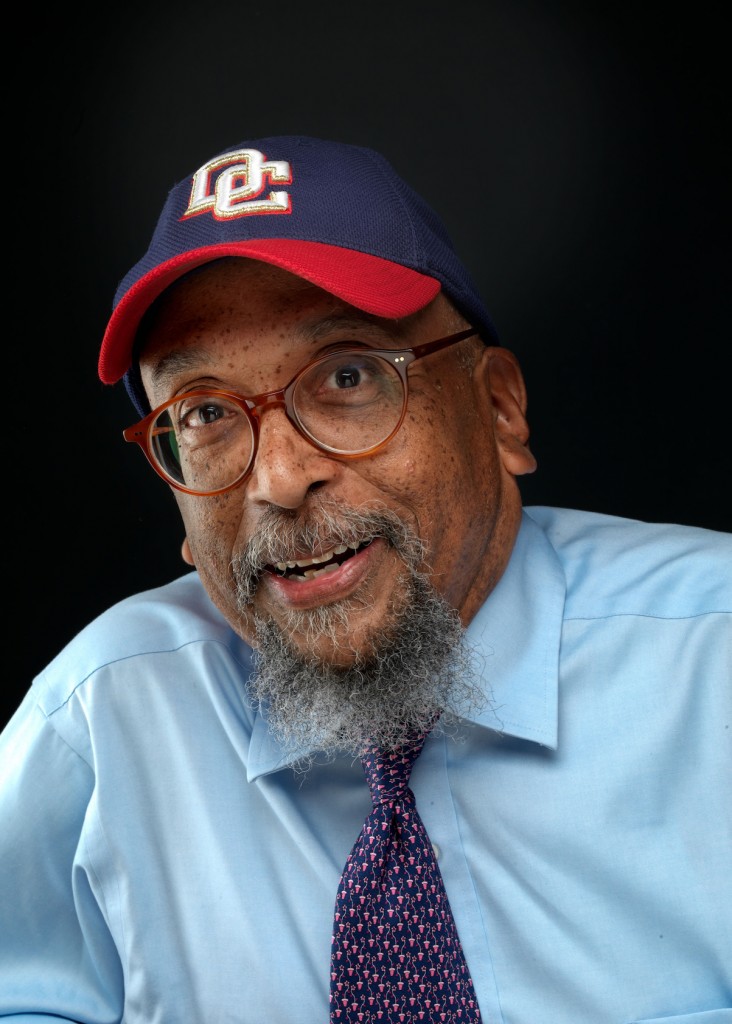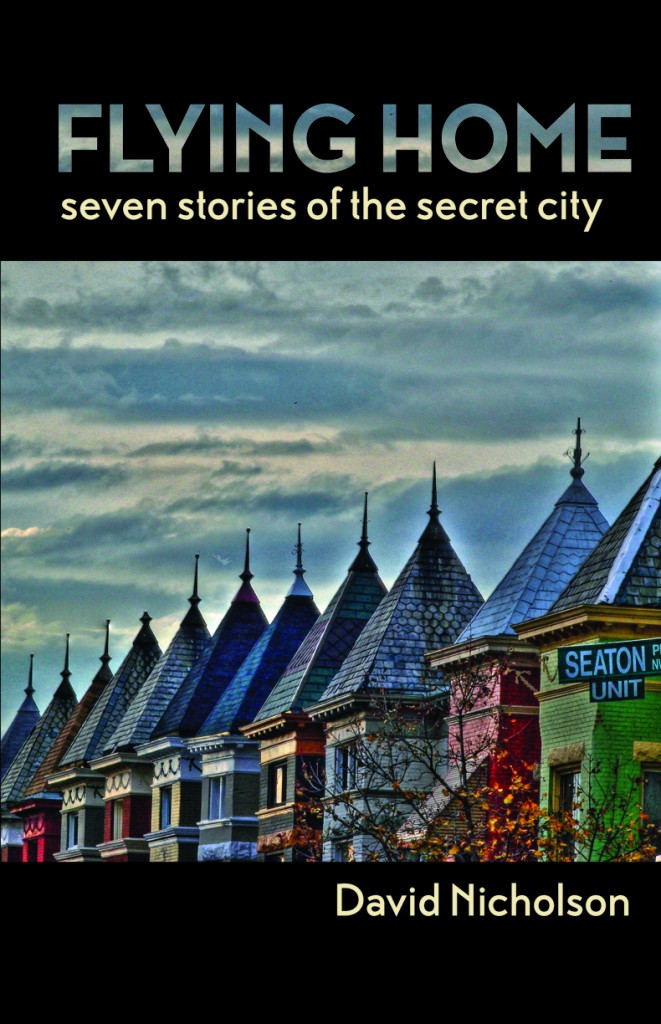Interview: David Nicholson
 Midwestern Gothic staffer Giuliana Eggleston talked with author David Nicholson about his first book, Flying Home: Seven Stories of the Secret City, founding Black Film Review, working as an editor and book reviewer, and more.
Midwestern Gothic staffer Giuliana Eggleston talked with author David Nicholson about his first book, Flying Home: Seven Stories of the Secret City, founding Black Film Review, working as an editor and book reviewer, and more.
**
Giuliana Eggleston: What’s your connection to the Midwest?
David Nicholson: I am a Midwesterner by convincement, in the same way I am a Southerner, the difference being I’ve actually lived in that part of the country. I lived two years each in Milwaukee, Dayton, and Iowa City in the late 1970s and early ‘80s. I sometimes wish I’d stayed in Milwaukee–it was a great town–but Washington, D.C., was and always will be home.
GE: How has your own experience growing up in Bloomingdale, Washington, influenced your creation of your fictional world? Do you find that using aspects of your own life is helpful in making a fictional place seem more real?
DN: The stories in my collection, Flying Home: Seven Stories of the Secret City, are set in an imagined version of Bloomingdale, the Washington neighborhood where I grew up. Obviously, my experiences there are part of what influenced and inspired me. But my time in the Midwest was also important–I decided to write about Washington late in my Iowa sojourn; I’d had to leave home to discover how much home inhabited me.
Early in “Gettin’ on the Good Foot,” the first story in Flying Home, the main character sees a James Brown poster with the title of one of Brown’s songs, “Papa’s Got a Brand New Bag.” Thinking about the scene after I’d written it, I was convinced I really had seen the poster when I first came back to Washington from Jamaica as a child. But I couldn’t have–the song was released in 1965, and we’d come back in 1960.
Maybe I made it up. Maybe I didn’t. I still don’t know. The only thing that matters is whether the scene is real to the reader.
GE: You used to work as an editor and book reviewer for The Washington Post Book World. Do you think that has had an impact on how you perceive reviews of your own work?
DN: I haven’t had that many reviews, but yes with this qualification: I read all reviews as if I were going to edit them. I can tell (or think I can) whether the reviewer really likes the book or is avoiding being honest about not liking it. And I (think I) can tell when the reviewer hasn’t really engaged with the book. I’ve been lucky. Reviewers have liked, and engaged with, my book.
GE: Aside from writing fiction, you are also the founding editor of Black Film Review. Do you see the two art forms as connected? Can the same be expressed through film as through literature?
DN: They are distinct media, with some overlap. Film is a visual medium, but you can’t have a movie without words. The script comes before anything else, most of the time anyway. Conrad to the contrary, however, I don’t think fiction can match the visual impact of the movies.
It’s interesting to me, though, how hard it is to make a great book into a movie. It’s so much easier to make a great movie from a bad book. Rereading The Godfather a year or two ago, I was amazed at how poor the writing was. But I’ve watched the first two films in Coppola’s trilogy many, many times. Each time, I find something new to marvel at.
 GE: Many of your characters in Flying Home: Seven Stories of the Secret City are ordinary working people. What about this type of lifestyle speaks to you in your writing?
GE: Many of your characters in Flying Home: Seven Stories of the Secret City are ordinary working people. What about this type of lifestyle speaks to you in your writing?
DN: I wanted to write about men and women like the people I knew growing up, and to render them in the full range of their humanity. Most of the people I knew back then were working-class. There were others who weren’t, of course, including most of my family. Those folks just didn’t find their way into these stories.
GE: What do you hope to reveal to your readers about the “secret city” that is Washington, D.C.? What is secret about it?
DN: A lot has changed since W.E.B. Du Bois wrote his 1932 Crisis article, “The Secret City: Impressions of Colored Washington,” but I think we black Americans still live in the equivalent of a secret city: To a large extent, the truth of our interior and emotional lives is missing from literature and popular media. I hope, in some small way, my book corrects that.
GE: What effect did you hope to achieve by writing seven stories set in the same place, as opposed to one long narrative?
DN: To be honest about it, I wasn’t really thinking about an effect. Each of the stories was conceived separately. It was only when I began to think about putting together a collection that I saw the stories were set in the same place and many featured the same characters.
GE: What’s next for you?
DN: I’m rewriting a novel, The House of Eli, whose main character is Shepherd, the Smithsonian curator in the story “Flying Home.” In the novel, Shepherd finds himself literally haunted by the ghost of a slave who was freed after saving the life of his master during the Revolutionary War.
I am also working on a biography of the Rev. William David Chappelle, an A.M.E. bishop who died in 1925. He was the comedian’s great-grandfather, but my interest grew out of research for a family history/memoir, “The Simonses of S Street: The Story of an American Family.” That book begins with the earliest ancestor I’ve been able to document, a slave who bought his freedom in 1819. I’m up to 1916 in both books.
**
David Nicholson’s stories have appeared in Stress City: A Big Book of Fiction by 51 D.C. Guys, Kiss the Sky: Fiction & Poetry Starring Jimi Hendrix, Best Stories from New Writers, and Best African American Fiction 2010. His essays have been anthologized in Black Men Speaking and Speak My Name: Black Men on Masculinity and the American Dream. He is a graduate of the University of the District of Columbia and studied at the University of Iowa Writers Workshop. Nicholson is a former editor and book reviewer for The Washington Post Book World. The founding editor of the magazine Black Film Review, he has received several grants from the D.C. Commission on the Arts and Humanities, and served on DCAH playwrighting and fiction awards panels. He has taught at the University of Maryland and Johns Hopkins University’s Washington, D.C., campus. A long-time resident of Washington, D.C., he now lives in Vienna, Va., where he is at work on a biography of A.M.E. Bishop the Rev. William David Chappelle and a family history/memoir, “The Simonses of S Street: The Story of an American Family.” Flying Home: Seven Stories of the Secret City is his first published book.






